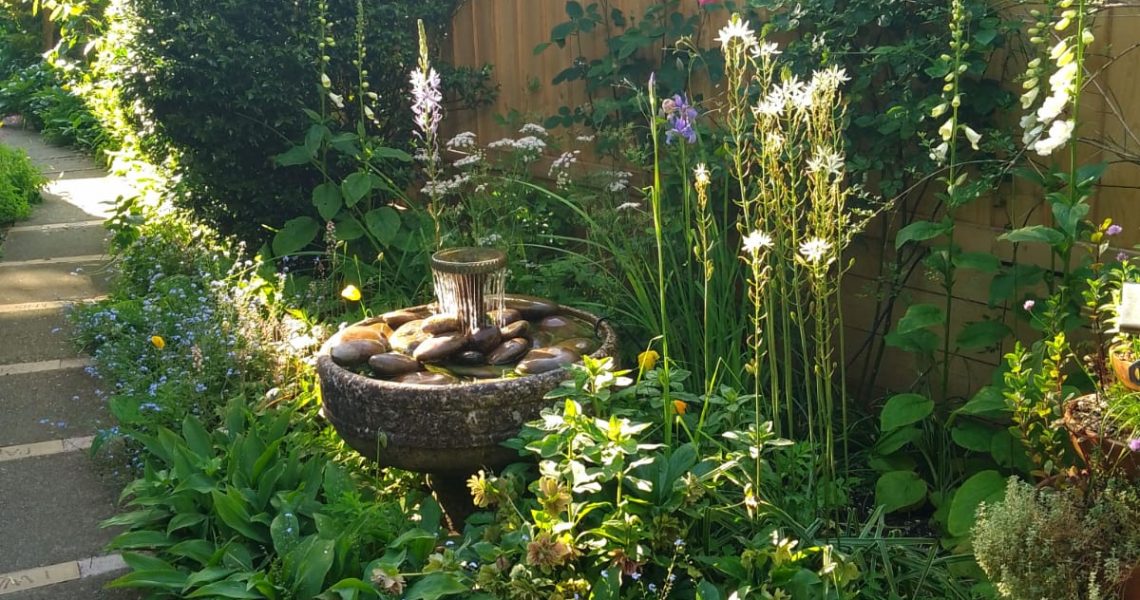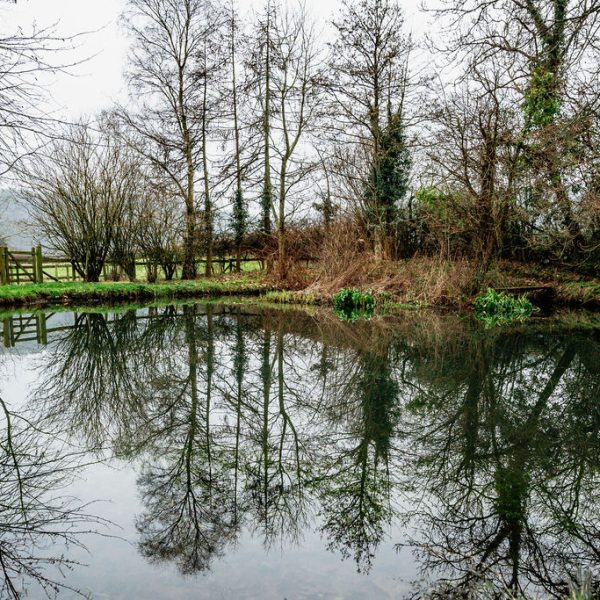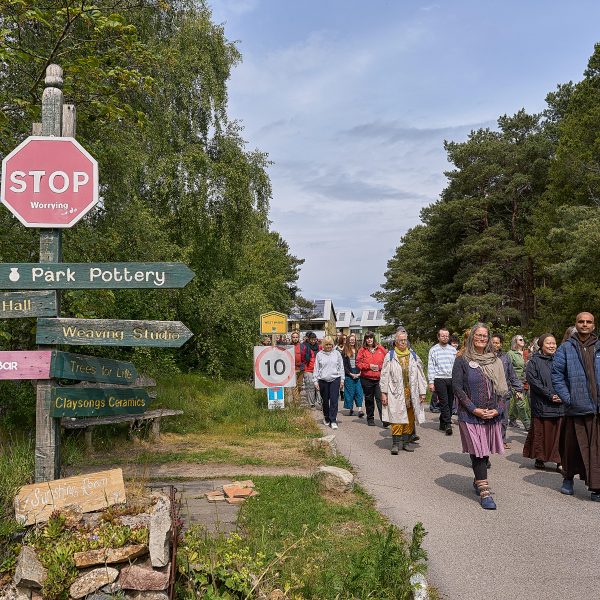The Garden as a Meditation Hall

Gardening makes us feel alive. Feet in soil. Rain on skin. Hands carrying plants. Back bent. Slow breath. Somehow, the rhythms of gardening connect us to what it means to be human. The simple task of tending to the earth and growing food is humbling. It brings us closer to the world around us: the seasons; the local wildlife, and to each other.
Importantly, there are 24 million gardens in the UK, and 87% of households have a garden. The way they are cared for can make a huge difference to the natural world. Your garden can be part of a mosaic in the wider landscape; linking urban green spaces with nature reserves and the countryside.
For our teacher, Thich Nhat Hanh, gardening was also a metaphor for the mind. He wrote that we can all become master gardeners of our mind consciousness by watering the seeds of love, compassion and joy. Within our Earth Care group, we were interested in exploring this relationship between mindfulness and gardening. Lesley and Bill kindly took the time to reflect upon the lessons they have each learnt from their vegetables and flowers. Perhaps after reading their thoughts you might go out into your own garden, be that a window box or an allotment, and notice the dynamic relationships taking place right beneath your feet.
The garden
A garden does not have to be large, it can be a small pot sitting on a window sill. Looking closely, we can see that just one plant contains the sun, the rain, the earth, and the whole cosmos. Here Bill reflects on the origins and inspiration for his own garden.
Bill: My garden is situated within two miles from the centre of Scotland’s capital, Edinburgh. The houses in the area were built in the 1930’s in an old orchard so each garden has an elderly apple tree. The main features of the garden are the Japanese maples. All of different colours and leaf shapes. Sitting under the trees is a water feature reminiscent of those I saw in Japan. Of course there has to be a Buddha too!
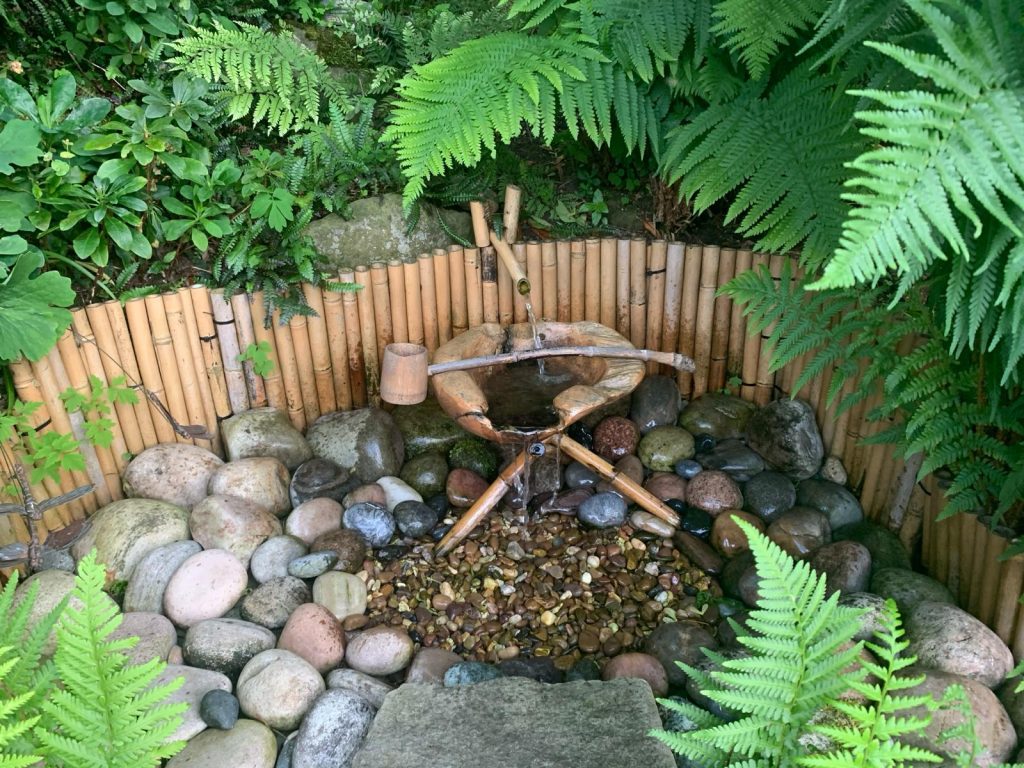
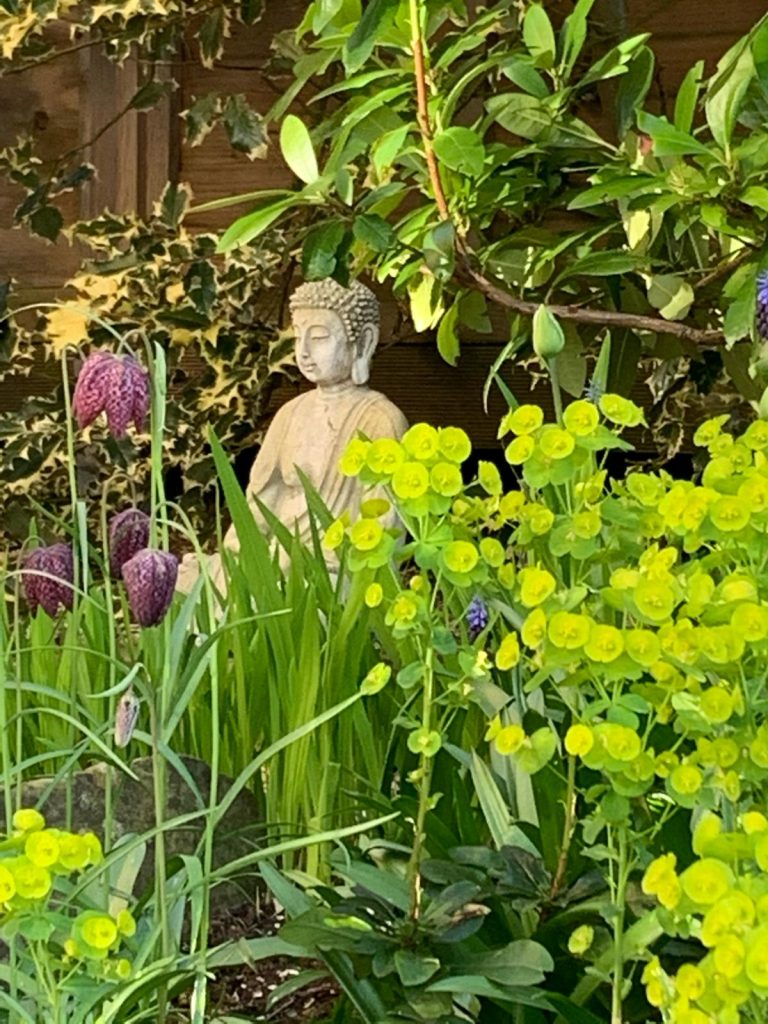
The gardener
A true gardener is never a dominating figure, rather they work within the complex relationships that allow life to grow, decay, and compost. Lesley comments on the joy of being part of this process, and the attentiveness it creates.
Lesley: If I can, I do some gardening pretty every day, most happily all day, when I can. There are moments of sheer joy, but mostly I experience a quiet contentment, deeper even than happiness, attending to the watering, weeding, pruning, tying in, staking. It’s good to work with my hands, and often I’m down on my knees to dig or to weed, it’s the work of humility and dedicated devotion. I’m close to the earth, to the rain, the winds, the sunshine, and the rhythms of the moon and the seasons.
The community
We are never alone in a garden, it is always full of beautiful bugs, bees and beasts who also make it their home. Lesley and Bill point out the many creatures who inhabit their gardens.
Lesley: It’s a privilege to be the custodian of a small plot, these past 30 years, drawing out the qualities and potential and creating a safe haven for birds, hedgehogs, toads, butterflies, bees, dragonflies and any other visitors, once a mallard duckling, once a fox cub.
Bill: The garden is chemical free and snails are welcomed along with the fox, a resident grey squirrel and occasional frog. Sadly no hedgehogs as yet. The bird feeders are always busy, the long tailed tits being my favourites.
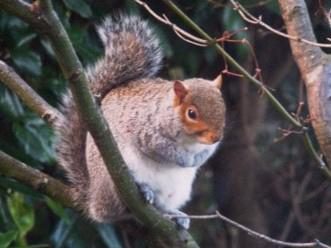
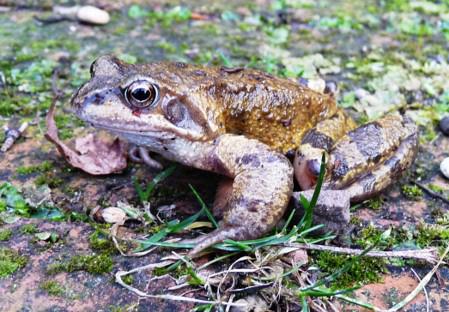
The sanctuary
Gardens are also islands within the storms of life. Bill comments on his own garden as a refuge.
Bill: Having lived in the Shetland islands for many years this garden is my sanctuary. My little bit of open sky and respite from the city. I can sit in the garden seat and stop and rest and listen to the birds singing. I can breathe a little easier, relax a little more and above all else stop. It is my little bit of the Pure Land, an oasis in the centre of the hubbub of city life. It’s also a place where in Spring miracles happen. Each and every year I sprinkle fairy dust (tiny flower seeds smaller than a pinhead) on to compost and watch in amazement as life emerges.
The practice
Finally, gardens are a meditation hall. They are a perfect environment for stopping and looking deeply. Lesley offers some of her own reflections whilst in the garden.
Lesley: For me gardening is a contemplative practice, the physical garden and the metaphysical or internal garden, they inter-are. Outside in the garden, with my hands in the soil, there’s a deep peace, outside of time, stillness, bird song. As the days pass and the seasons change, gardening is a teaching on impermanence, flowers manifest, then die back. The slow, almost imperceptible daily shift in each season, cherishing the brief flowering of magnificent peonies, and how, when the time comes to cut them down, to cherish the compost they help to make. I have three compost heaps, and they have taught me that nothing is wasted, prunings, weeds, the contents of the compost bin, soiled straw from the duck house, everything can break down to become gorgeous, rich, crumbly compost to spread, almost good enough to eat. The stability, the grounding work of gardening is then there to call on when I need to care for my suffering. Giving it its true name, like writing out a plant label, knowing what it needs, and tending it, gently, carefully. Suffering is a rich resource, a true gift, the precious opportunity to grow and transform, the compost, the material I need to cultivate a garden of understanding and kindness, peace, for myself and for others.
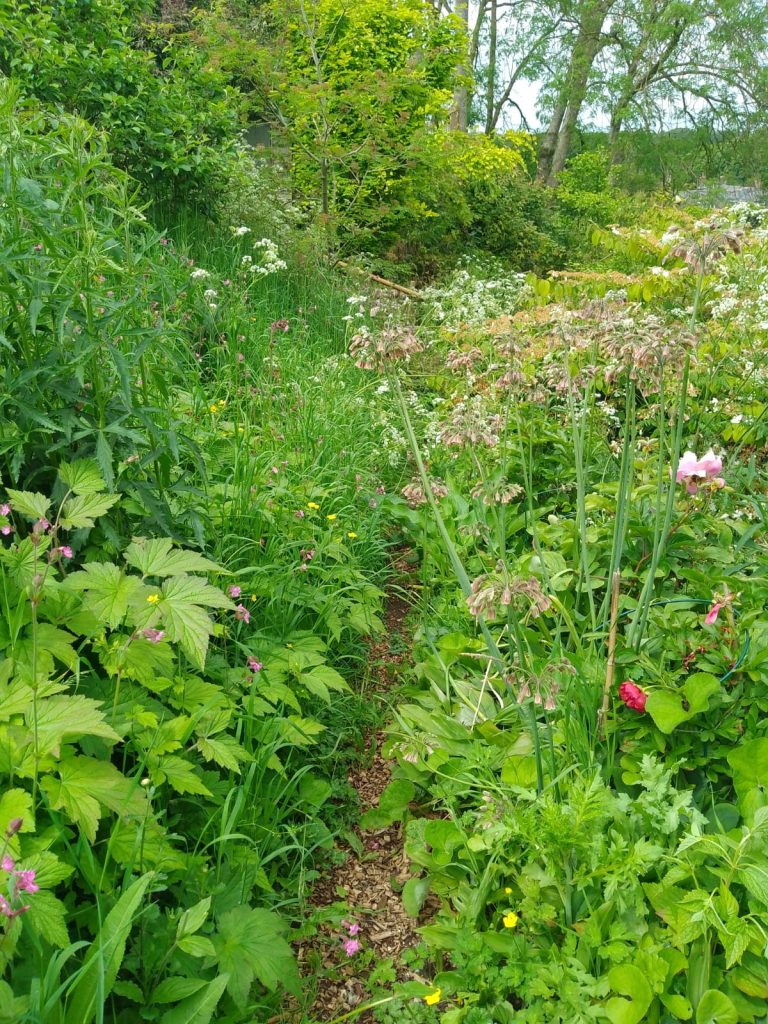
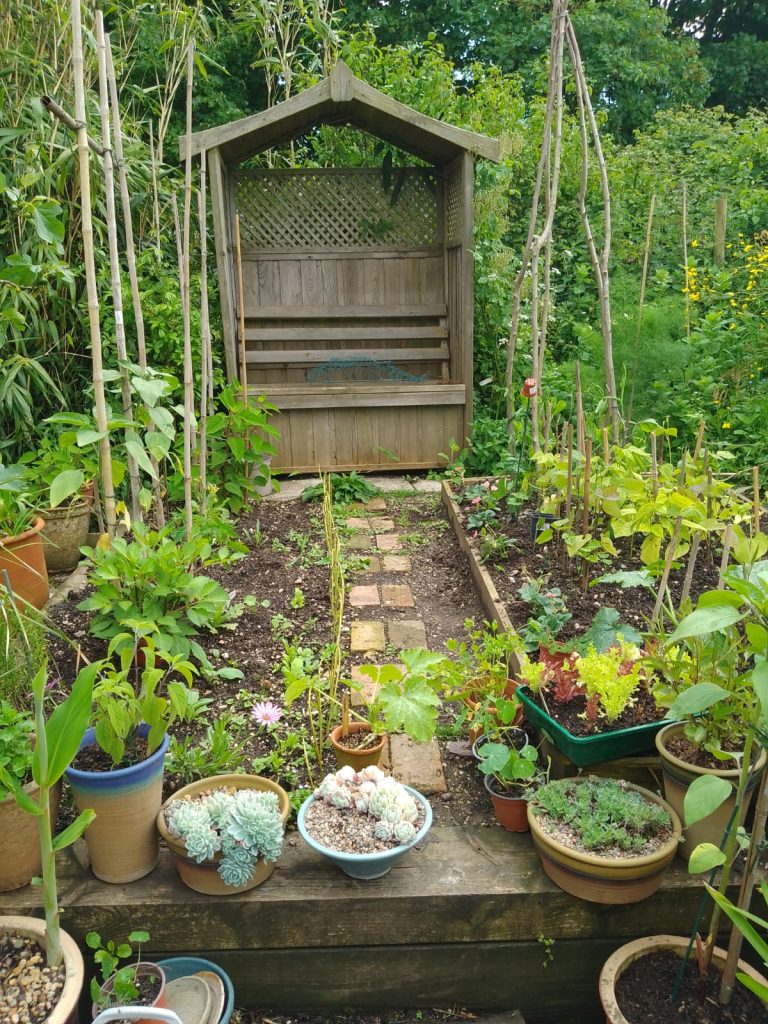
We hope that this month’s Earth Care blog may have inspired you to get out into your garden and explore the joys and wonders it holds. By getting to know the soil, plants, and wildlife that lives around us we can build a deeper and more meaningful connection to our Earth.
If you have a story that you would like to share about caring for the Earth, please email us at earthcare@plumvillage.uk; we would love to hear from you!

